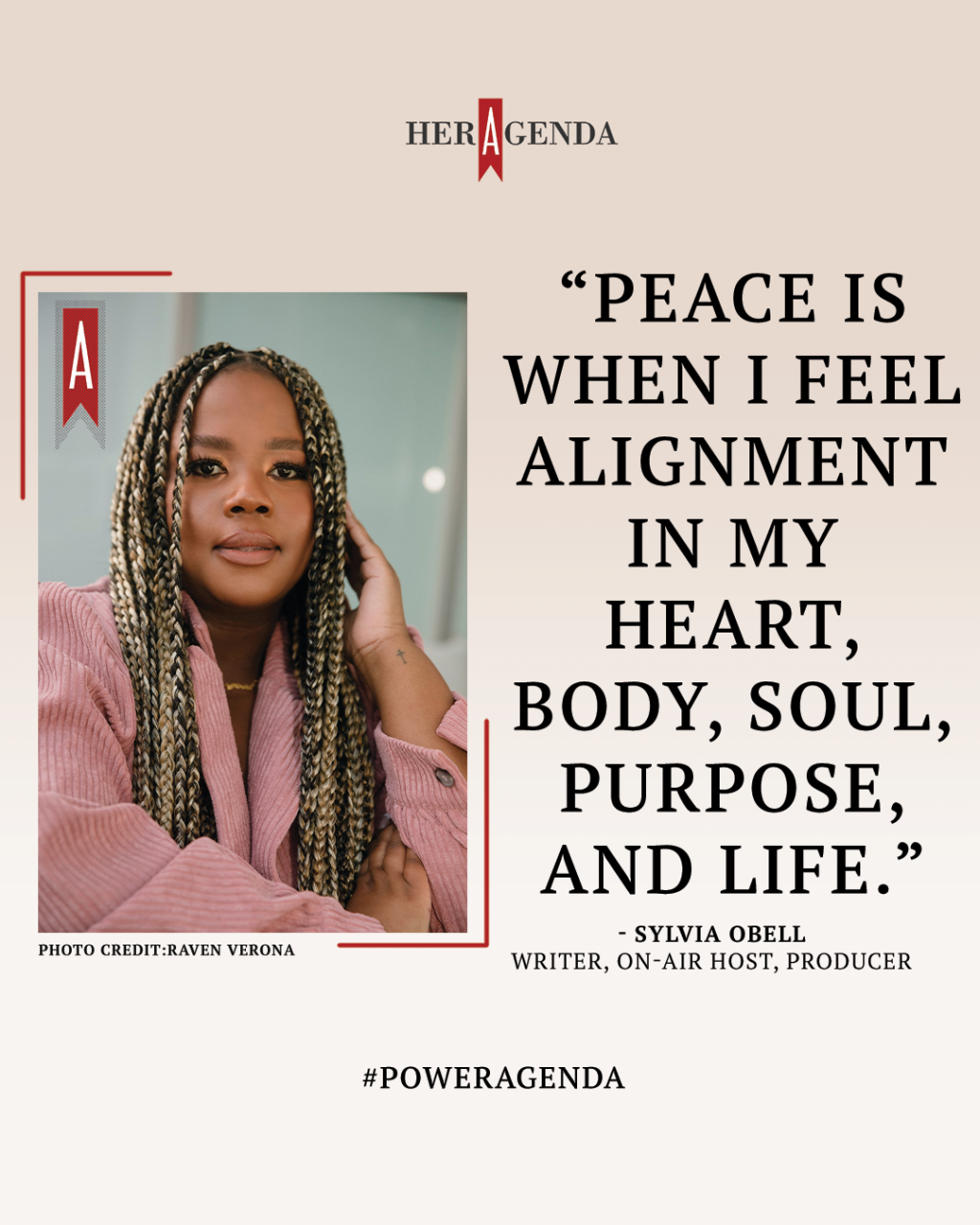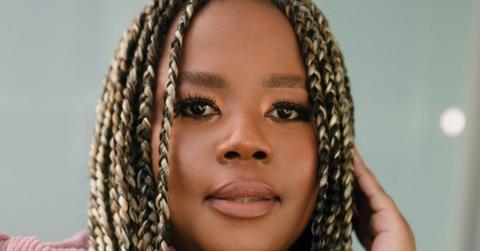Sylvia Obell is an entertainment journalist whose relatable and entertaining approach to news has made her a valued rising voice in culture. From being a mere consumer of culture and entertainment news to now being one of the faces of it, Sylvia’s devotion to versatility and dedication to her purpose has cemented her place in this fickle industry.
As the former host of Hella Opinions from BuzzFeed News and now co-host of Okay, Now Listen from Netflix’s Strong Black Lead, she’s learned that her worth was never tied to a company but instead it’s tied to her purpose. Through her digital presence and no-nonsense writing style, Syvlia makes it clear that neither success nor haters will ever steer her away from sharing her truth.
Her Agenda recently chatted with Sylvia about protecting her peace, imposter syndrome, and separating self-worth from success.
Her Agenda: I read that you loved magazines when you were younger and in college you were the managing editor of the school paper. How has your relationship to journalism changed now that it is no longer a hobby, but a job and source of income?
Sylvia Obell: Initially as a consumer of journalism growing up, I loved it for the representation that it gave me since we were not getting a lot of it on screen like we are now. I felt like Black magazines, specifically, Essence were showing me faces that looked like mine and telling stories that were similar to mine in a volume that mattered to me. When I was in college, entertainment writing always stood out to me, and when I was the managing editor of the paper I tried to bring those stories to campus. Whether it be writing about Black love or sexual assault within the Black community, it was really important for me to highlight those topics while I had the freedom. I knew once I got into journalism from a professional standpoint that stories would be dictated and assigned to me. I do think that being in the industry takes away those rose-colored glasses and you see the blood, sweat, and tears that happen behind the scenes.
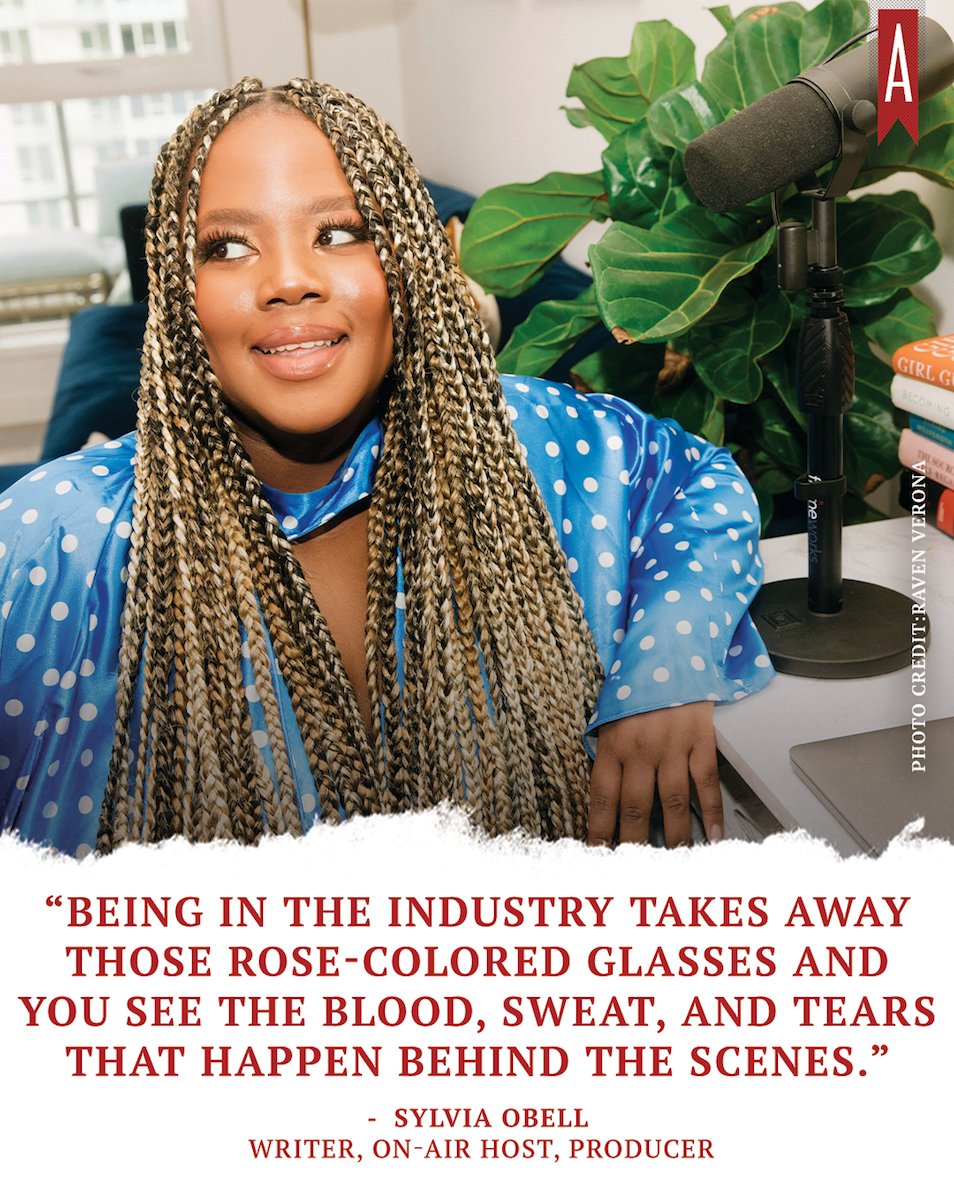
I had different phases of how I felt about journalism based on what I was doing and the job I had at the time. As I’ve grown since graduating from graduate school, the old school view of how a journalist should be does not fit the impact and purpose that I have for my life. What’s been beautiful is seeing the transformation that is taking place now where journalists are being seen as humans and having feelings and thoughts. I love the vulnerability and personalities that we are able to insert into our work now, and not having to hide behind the facts.
Her Agenda: I am a huge fan of ‘Okay, Now Listen’ which you Co-Host for Netflix’s Strong Black Lead alongside Scottie Beam. With all of the opportunities and platforms that you have been able to become the face of, do you ever suffer from imposter syndrome or do you feel like you got this?
Sylvia Obell: Oh girl, every day! ‘Okay, Now Listen,’ is my first podcast and I’ve never really done podcasting nor had this much agency over one. Like, I’ve never had this much freedom with such a big budget and to be asked ‘Hey, what do you guys want to do?’ Me and Scottie developed a podcast that we felt fit us and our personalities. I think Jasmyne Lawson, now a content executive at Netflix, was an integral part in making sure that it was natural, even down to her asking if I wanted to do this with Scottie because she knew that we were friends.
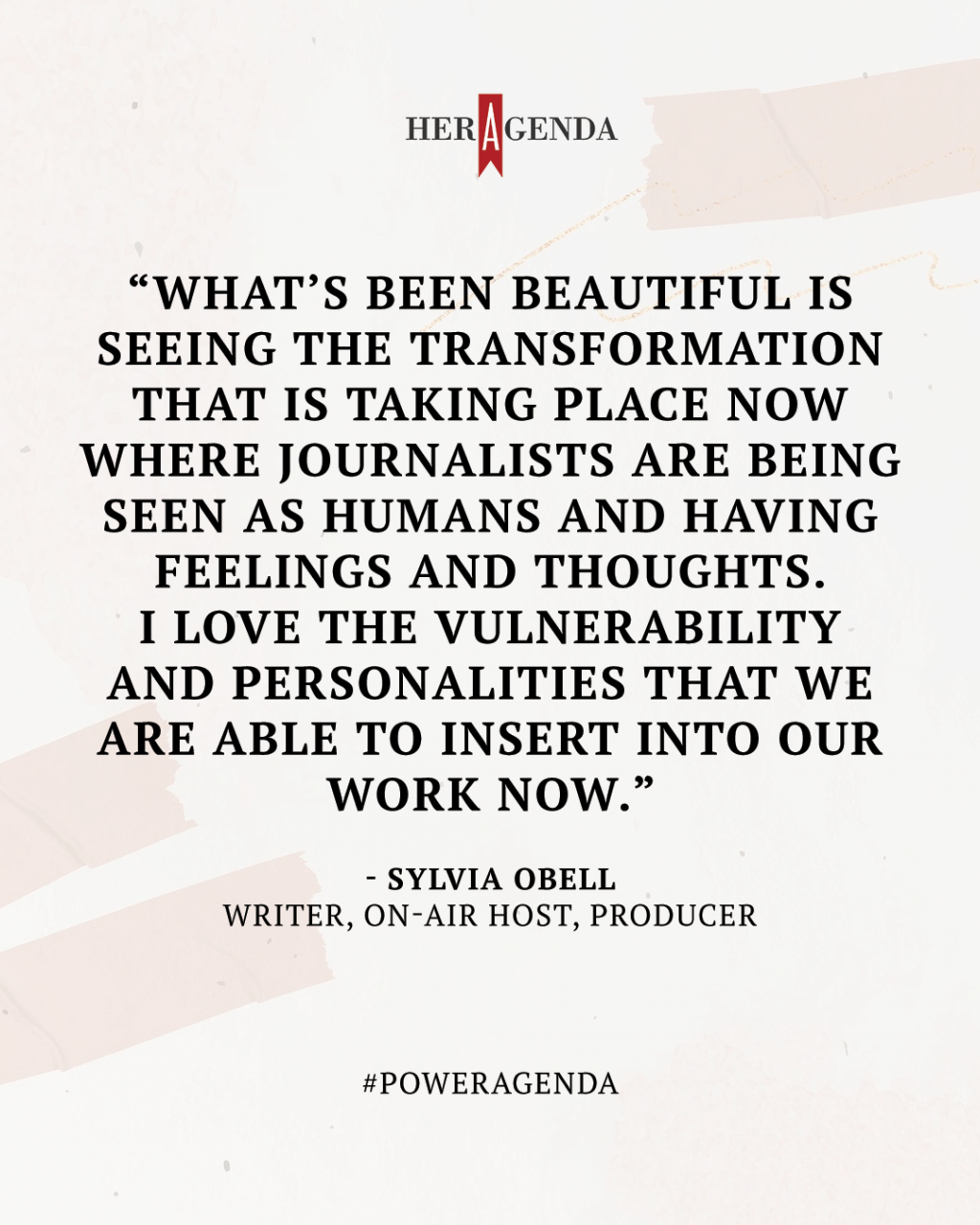
I knew that my work was good. I knew I could write, correspond with the news, do interviews on camera, and moderate conversations. But, this is the most ‘me’ that I’m putting into something. I pondered, ‘Will they like me?’ This is me as a person and who I am, I’ve never been this vulnerable on anything. I’ve never had to talk about such personal things before, or exposed so much of my heart on any other platform or project. But, it feels like the safest space to do so because our team is composed of all Black women, our producers are Black women, and I’m doing this with one of my closest friends in the world and we are already a safe space for each other.
It was the most comfortable way to go into it, but I definitely had the imposter syndrome of, ‘Am I a media personality that they would be into?’ Sometimes when a new opportunity comes I think, ‘Can I do this?’ but by the end, it always shows me how I’m meant for this. One of my favorite quotes is, “What if I fall?” Oh, but my darling, “What if you fly?” If fear is the only reason why I’m not doing something, I don’t allow myself to walk away from it. Something I’ve learned about myself is that I do get afraid of falling, but I’ve always flown.
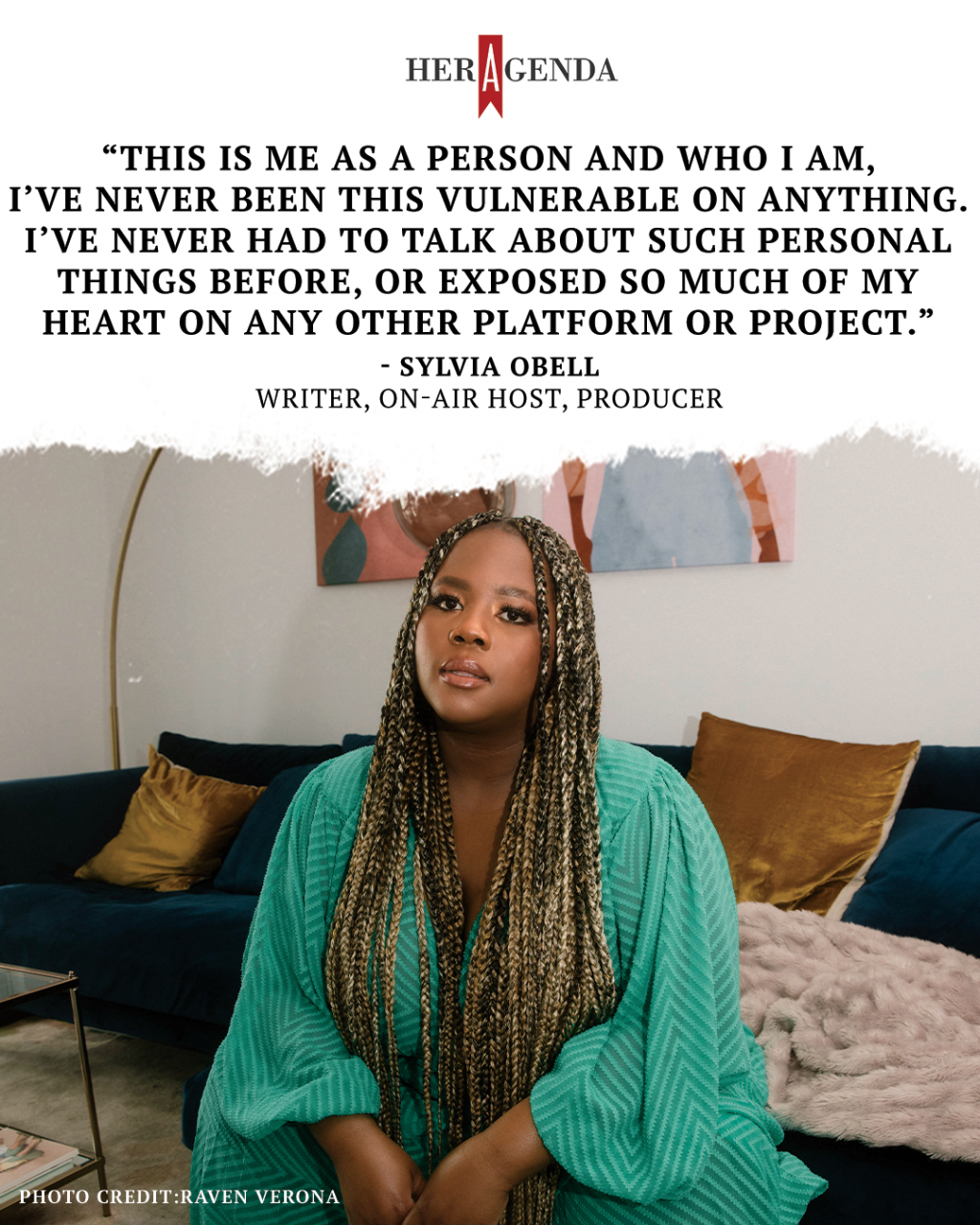
Her Agenda: You had a very popular article published, How Blac Chyna Beat The Kardashians At Their Own Game, which gained a lot of applause. Did writing this article provide a realization when it comes to the intersection of race and pop culture?
Sylvia Obell: Yeah, for sure! That was another moment when imposter syndrome was at an all-time high. That was the first big feature that I wrote for BuzzFeed. Up until that point, I was doing quizzes and shorter stories, while that was a four thousand word article without an interview base. I had never done something like that so it was a big experiment in so many ways. To me, I always knew that pop culture is a lens into society. It is a reflection of what we allow to be popular, and what we allow to be popular is a direct reflection of us as people. I’ve always looked at pop culture that way, whether it be the Kardashians, music industry, or scripted comedy, but I’d never been able to write about it how I wanted. I was also very intimidated because my writing voice is not the typical, academia-focused style. With my work, I want to take risks and say funny things. I had to fight for a lot of lines in that story which turned out to be the ones people loved the most. It taught me that there is an appetite for this and there is a direction that culture writing is going in.
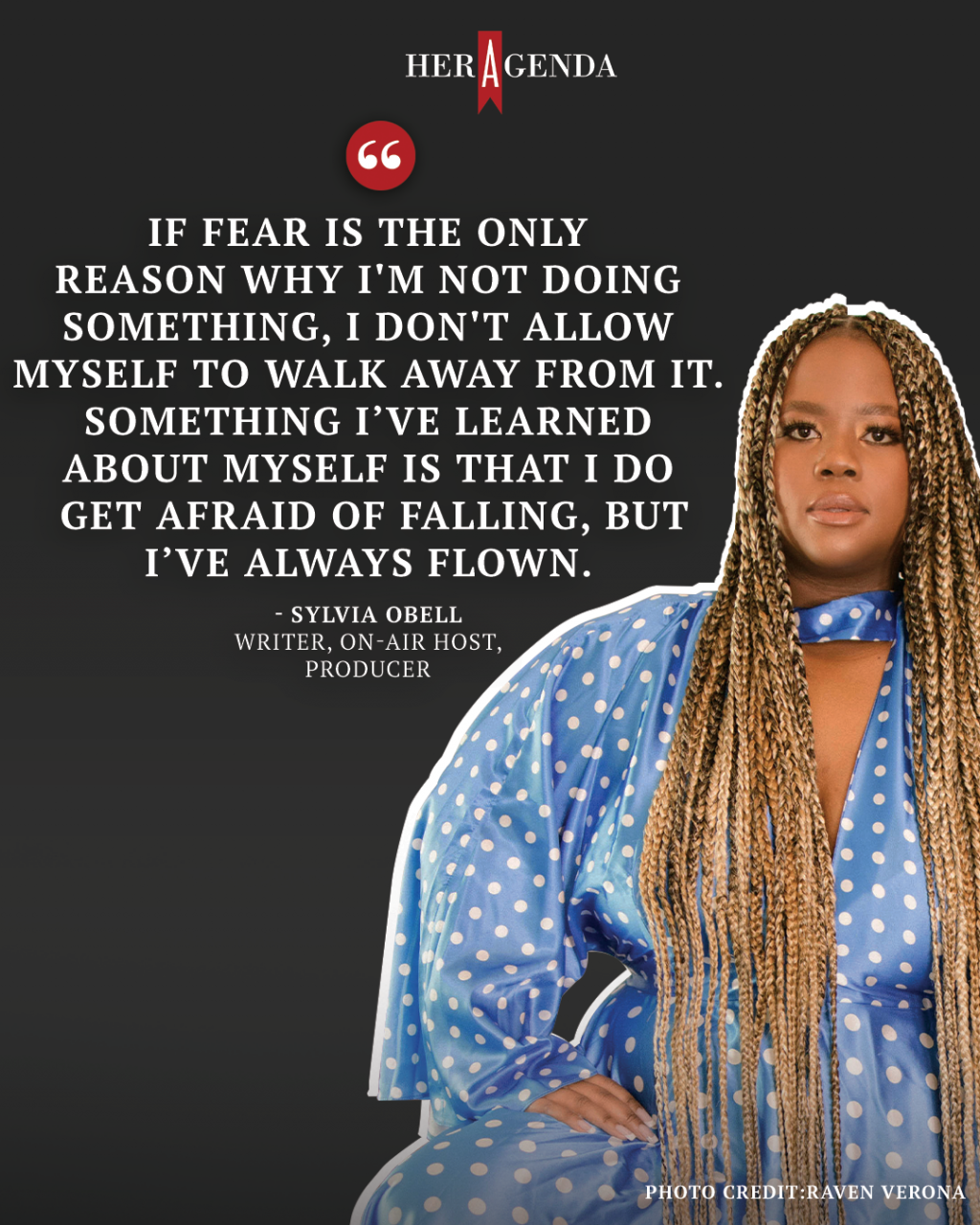
Her Agenda: I’ve noticed that with women of color who are very ambitious and successful, it is hard to separate your self-worth from your career. Has your journey to separating the two always been clear or was there a journey to getting there?
Sylvia Obell: It was a journey! I’m a perfectionist and I was a straight-A student who was not allowed to bring home B’s and C’s. I was not allowed to skip the extra credit homework. I went to college on a scholarship and I went to an ivy league graduate school after that. I graduated summa cude laude and everything was very much an achievement for me. I was raised to put a lot of my worth into how smart I am. That instinctually translated over into work once I got out of school, because I wasn’t being graded, but thought, ‘What’s the new grade system?’ I felt if I couldn’t have that ‘A’ on my report card telling me that I’m doing good, then what will? Social media gave us the craziest rubric ever.
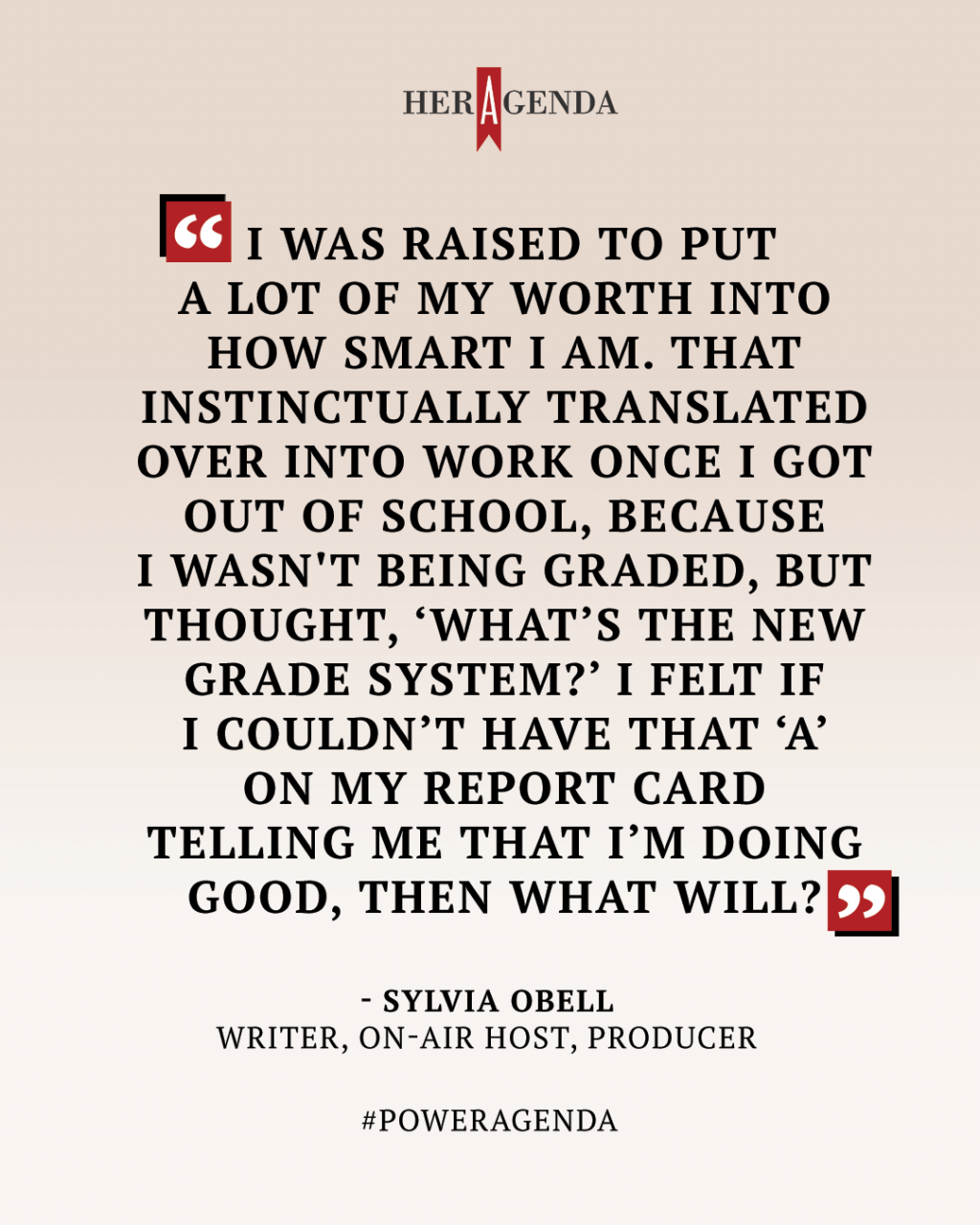
From working at BuzzFeed, how many views we were getting was ingrained in our work and performance. I felt like my worth as a writer was not about how culturally impactful my words were, but how many views it would get. The Blac Chyna story was seen as such a success because it was the first story in the culture section, which had just been started at BuzzFeed, that broke 1 million views. Then comes the realization that not every story will have the same numbers which can make you feel less as a writer. Something that has always grounded me is my insistence on making sure that I still had friendships and people in my life who were not in this industry. I still have my best friends from childhood who don’t even know what I am up to half the time and family members who asked, ‘What’s a BuzzFeed?’ Having people who loved me, knew me, and saw my worth before any of these things is how I’ve managed to not get lost nor tie my worth to this facade.
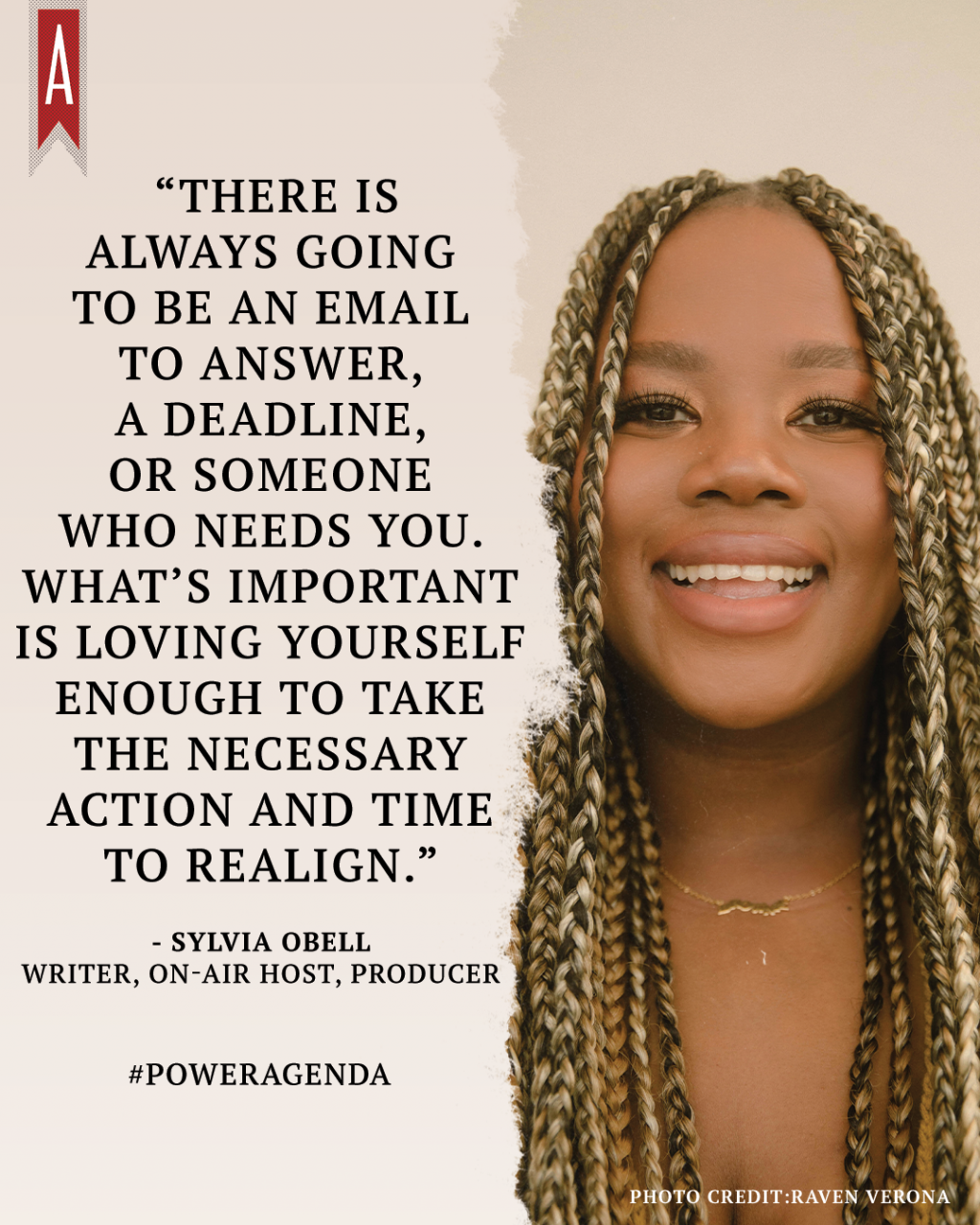
Her Agenda: A lot of people with public-facing careers are often told that they can’t have an opinion on a sector outside of their career. For example, Lebron James was told to stick to sports when speaking about police brutality. As someone who has a career that is based on your opinion, how do you respond to people trying to box you in or tell you that your voice is invalid regarding a certain topic?
Sylvia Obell: The Trump era brought policy to the forefront. I remember repeatedly having to go to my editor’s office and asking, ‘Can I talk about this?’ Some things were not a political statement but my actual life. I’m a first-generation American and remember when the immigration attacks were happening. It was a wake-up call that we didn’t need to be boxed in as journalists, especially as Black journalists. We are often the best people to put out nuanced, layered takes on these topics. I remember when trolls and white supremacists on Twitter tried to shut us up. I remember when I took being a journalist off my social media bio because people felt like they could use that as an attack to tell me that I’m not able to speak on something. Nobody is a machine. We can feel a way but we can also still be fair and report.
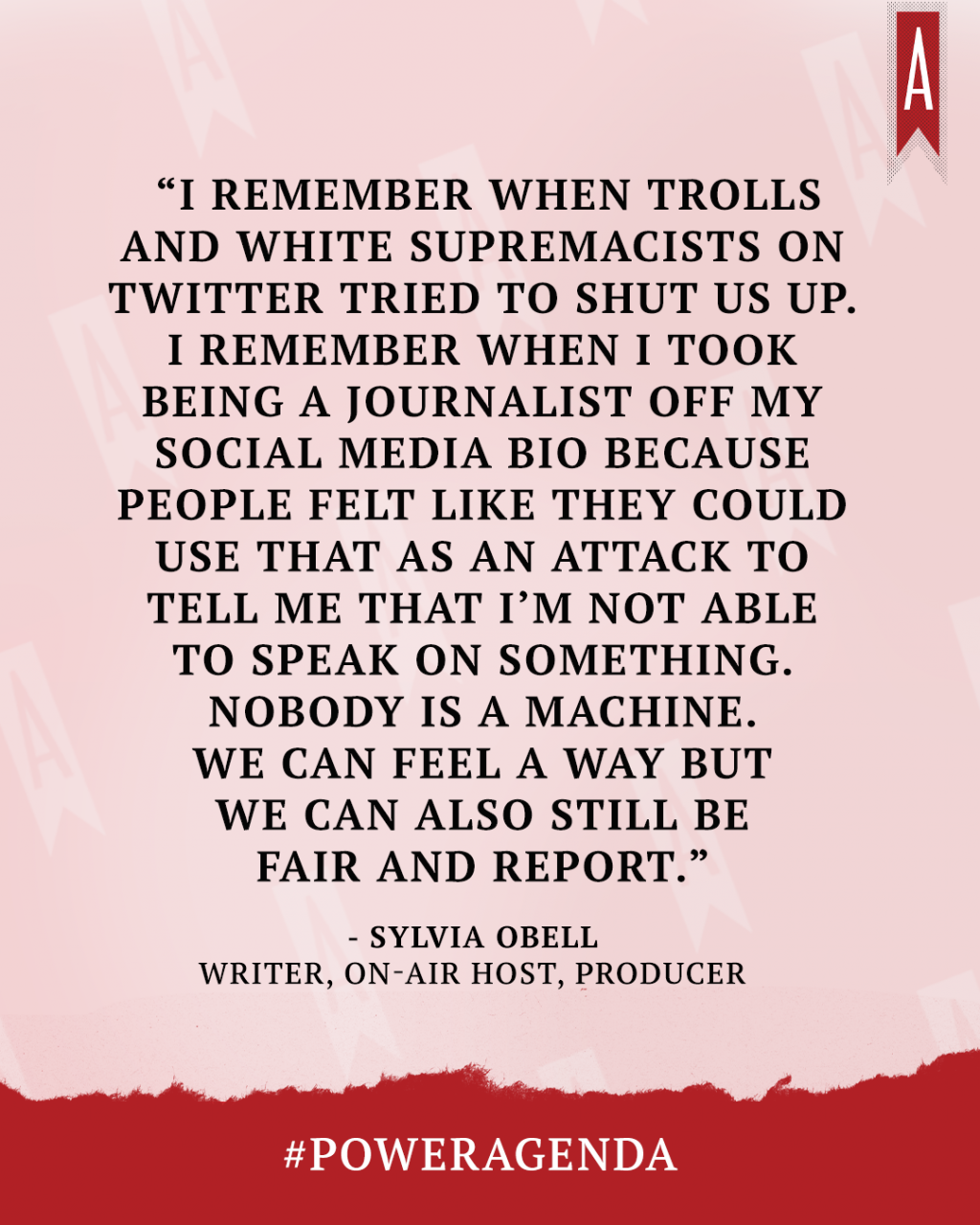
Her Agenda: A lot of people and companies use Black people as a source of entertainment and gossip, but many times there are few Black people in the newsrooms documenting these stories. Even at major platforms, how do you maintain your momentum working 2x harder from the less recognition or even pay?
Sylvia Obell: The pivotal thing is that I stopped doing that a few years ago. I felt very empowered by the other Black women who worked at BuzzFeed. I worked with some very courageous, dynamic, no BS taking women. I don’t keep a smile on my face because I shouldn’t have to. The twice as hard thing is true and it was very frustrating. We realized that we can either keep being on this hamster wheel or break it and do what we can to speak up about inequalities. For a long time, I thought keeping a smile on your face and working twice as hard was what I had to do. But, burnout is real and you realize that the system is broken. It was all about speaking up then working for myself. I didn’t want to work for any corporation, I became the corporation. Everyone else is a client of mine. Instead of working myself to the ground, I was going to go after my worth and do it my way.
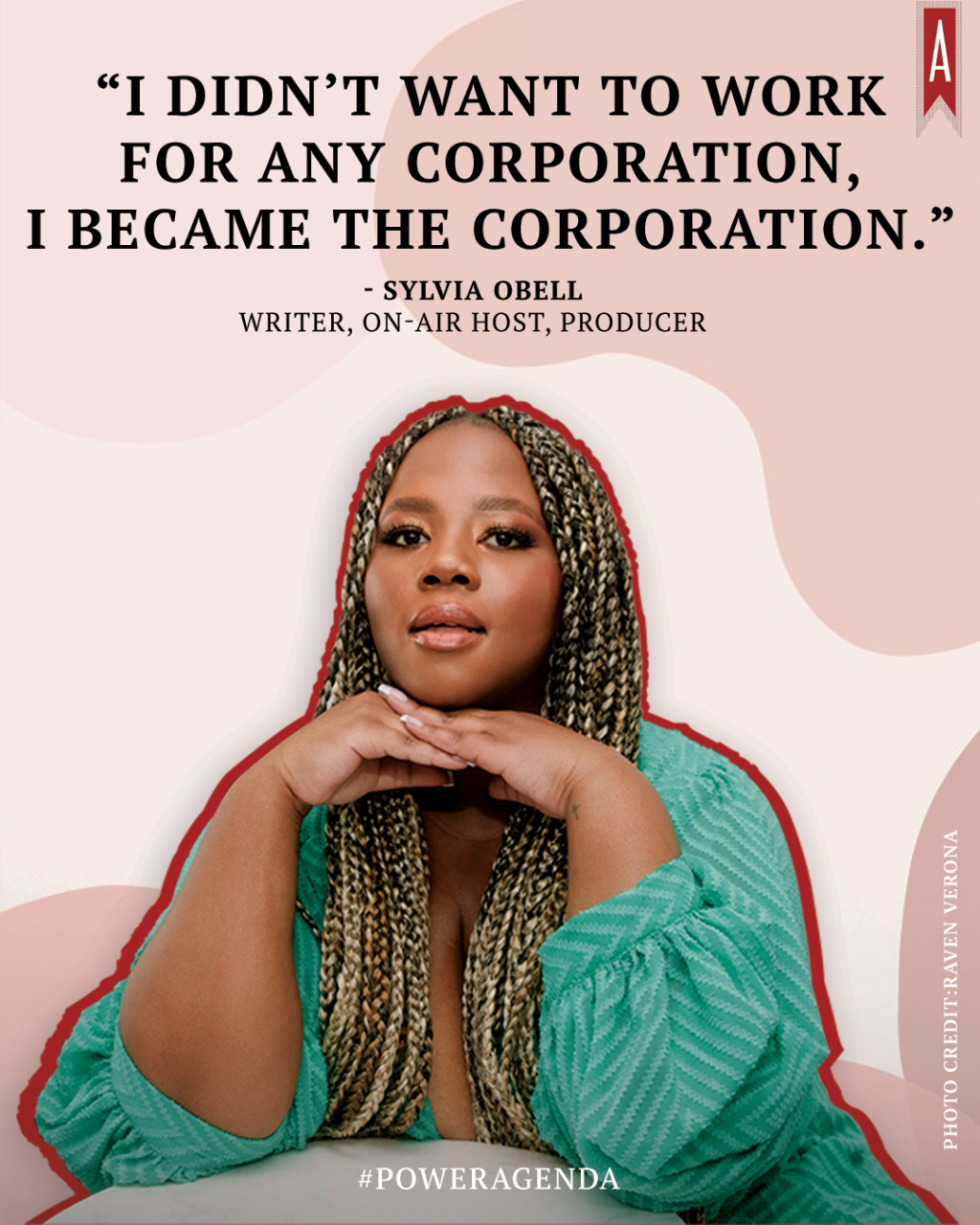
Her Agenda: A popular phrase today is “protecting my peace.” How do you define peace in today’s climate and how do you protect your peace since you have to be on social media for your job?
Sylvia Obell: Peace is when I feel alignment in my heart, body, soul, purpose, and life. When that feels off-balance in some way, I have to check in and figure out what is throwing it off to get it back in alignment. How I protect my peace is by prioritizing it. For a long time, I was used to putting everyone before myself. A lot of things like my deadlines or whatever people needed from me came before my peace. Eventually, you realize that way of life isn’t sustainable because there is always going to be an email to answer, a deadline, or someone who needs you. What’s important is loving yourself enough to take the necessary action and time to realign. It can be taking time off, going on vacation, or treating yourself. I also have professional and personal boundaries and am aware of how much of myself that I give away. I remind myself that I cannot pour from an empty cup and I have to keep my cup full.
